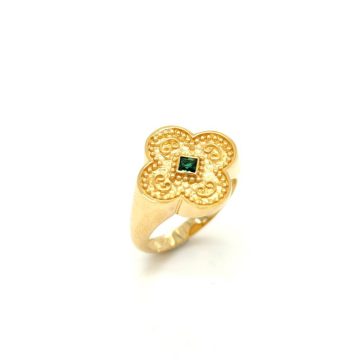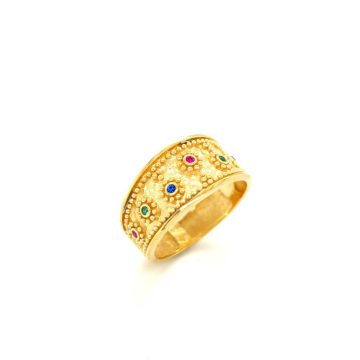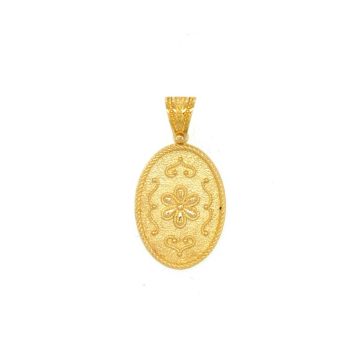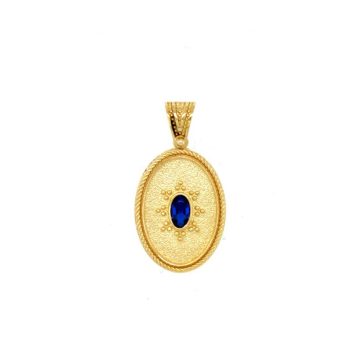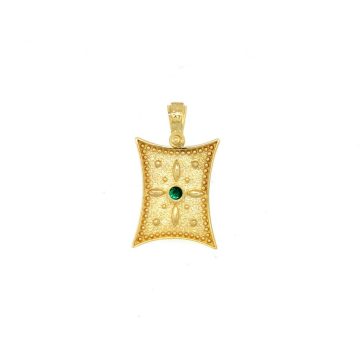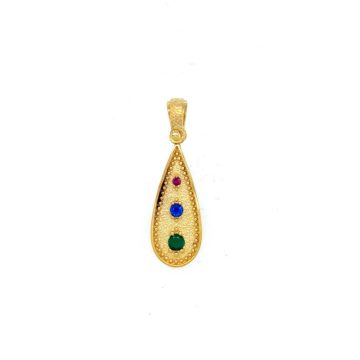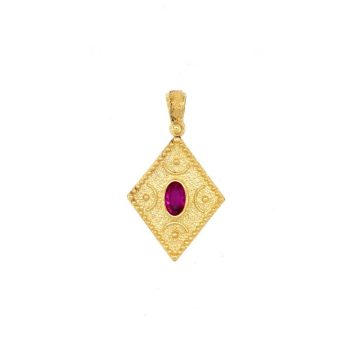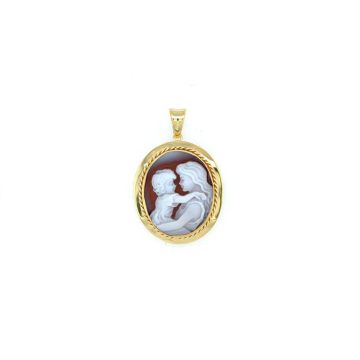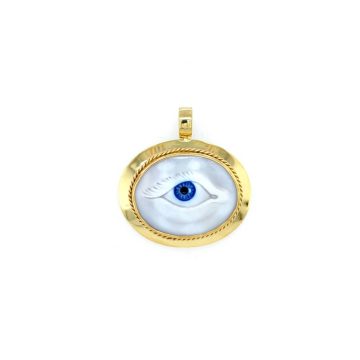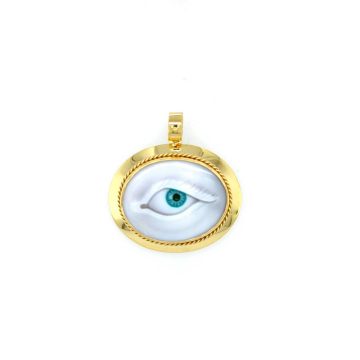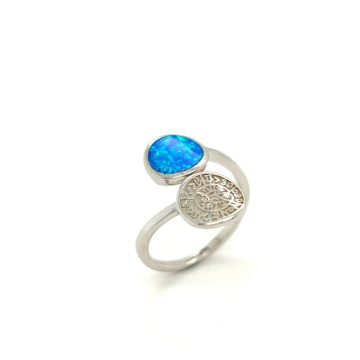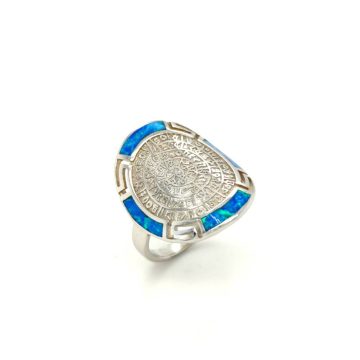Women’s ring Byzantine, gold Κ9 (375°)
A women’s ring of Byzantine aesthetics adorned by a central green zircon. The ring is made of gold K9 (375°).
Women’s ring Byzantine, gold Κ9 (375°)
A women’s ring of Byzantine aesthetics adorned by red, blue and green zircon. The ring is made of gold K9 (375°).
Women’s pendant Byzantine, gold Κ9 (375°)
A women’s pendant of Byzantine aesthetics in the shape of oval which is made of gold K9 (375°).
Women’s pendant Byzantine, gold Κ9 (375°)
A women’s pendant of Byzantine aesthetics in the shape of oval adorned by a central blue zircon. The pendant is made of gold K9 (375°).
Women’s pendant Byzantine, gold Κ9 (375°)
A women’s pendant of Byzantine aesthetics adorned by a central green zircon. The pendant is made of gold K9 (375°).
Women’s pendant Byzantine, gold Κ9 (375°)
A women’s pendant of Byzantine aesthetics adorned by red, blue and green zircon. The pendant is made of gold K9 (375°).
Women’s pendant Byzantine, gold Κ9 (375°)
A women’s pendant of Byzantine aesthetics in the shape of a rhombus adorned by a central red zircon. The pendant is made of gold K9 (375°).
Women’s pendant Cameo natural sardonyx ‘mother and child’, gold Κ14 (585°)
A women’s handmade ‘Mother and child’ pendant made of natural sardonyx, carved with the Cameo technique and set with K14 (585°) gold.
Women’s pendant Cameo natural seashell with synthetic color “Eye”, gold Κ14 (585°)
A women’s handmade pendant “Eye” made of natural shell with synthetic colors in shades of white and blue, carved with the Cameo technique and tied with gold K14 (585°).
Women’s pendant Cameo natural seashell with synthetic color “Eye”, gold Κ14 (585°)
A women’s handmade pendant “Eye” made of natural shell with synthetic colors in shades of white and turquoise, carved with the Cameo technique and tied with gold K14 (585°).
Women’s ring, silver (925°) rhodium-plated, Disc of Phaistos with artificial opal
Women’s ring made of Rhodium-plated Silver (925 °) with the Disc of Phaistos and artificial opal. The Disc of Phaistos is a disc of baked clay, which is an archaeological find from the Minoan city of Phaistos in southern Crete and probably dates to the middle or late Minoan Bronze Age. It is one of …
Women’s ring, silver (925°) rhodium-plated, Disc of Phaistos and meander with artificial opal
Women’s ring made of Rhodium-plated Silver (925 °) with the Disc of Phaistos and meander with artificial opal. The Disc of Phaistos is a disc of baked clay, which is an archaeological find from the Minoan city of Phaistos in southern Crete and probably dates to the middle or late Minoan Bronze Age. It is …

